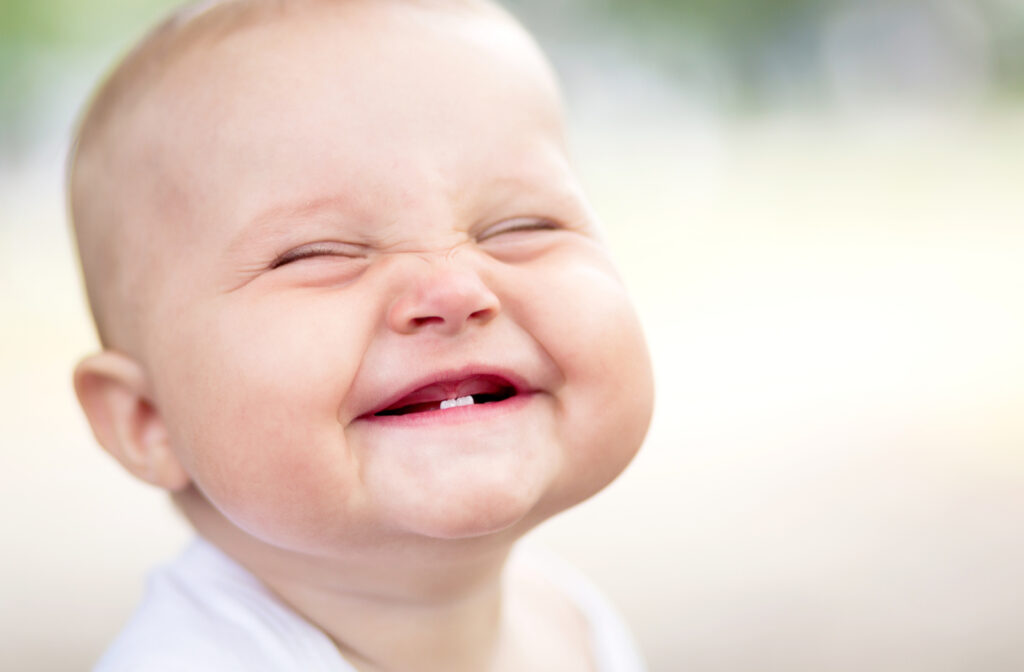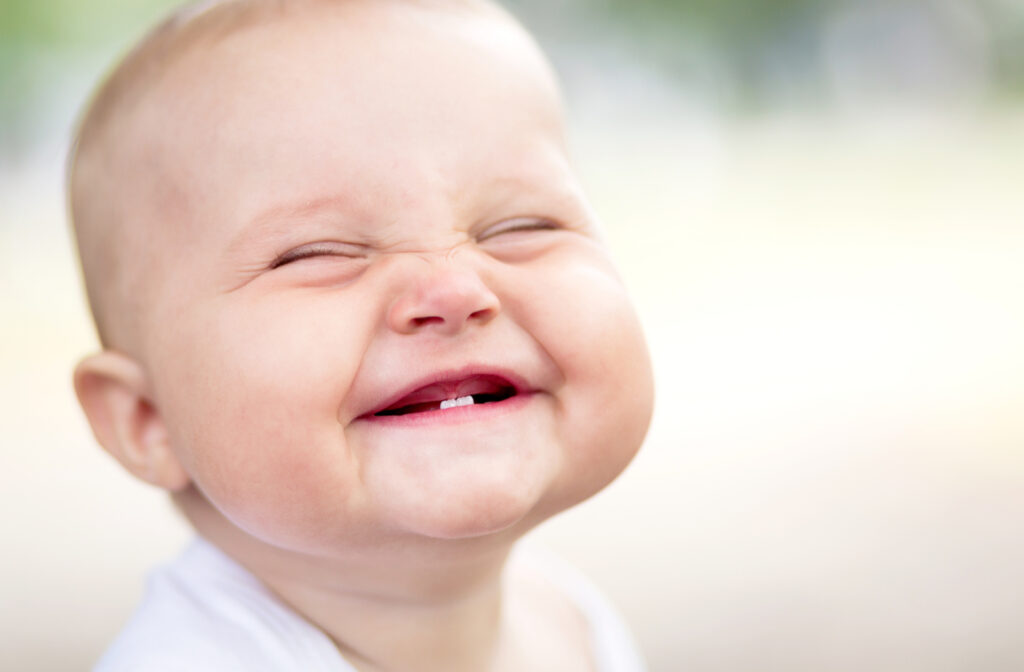
As a new parent, the slightest change in your baby’s behavior can make you worry. One such puzzling yet common phenomenon that often leaves parents scratching their heads is teeth grinding, or bruxism, in babies. Bruxism is a common condition that affects people of all ages. However, it can sound particularly concerning to parents when it affects babies. While most babies will outgrow this habit on their own, it can also be a sign of an underlying issue that requires medical attention.
As a parent, it is essential to understand the causes, symptoms, and potential consequences of teeth grinding in babies. In the rest of this article, we will take a deep dive into the reasons behind babies grinding their teeth, and explore the different steps you can take to help your little ones if they are experiencing bruxism. At the end of this article, we
Why Do Babies Grind Their Teeth?
Babies grind their teeth for a variety of reasons, and understanding the reasons behind this behavior can help parents take the necessary steps to address any underlying issues.
The most common cause of teeth grinding in babies is none other than teething. Babies begin to teethe as early as 3 months old and as late as 12 months old. As a baby’s first tooth emerge, they will experience discomfort and pain as their gums become swollen and red. Grinding their teeth against the gum can help relieve some of the pressure and provide temporary relief. When their top and bottom teeth start to appear, the behavior can worsen. Note that teeth grinding may also be caused by pain from other conditions such as an ear infection or headache.
Another cause of teeth grinding is misalignment of the teeth. As a baby’s primary teeth emerge, they may not be perfectly aligned. This misalignment, also known as malocclusion, can cause the baby to grind their teeth, either to attempt to correct the issue or to adjust to the new sensation. Usually, as the baby grows and their jaws develop, the alignment of their teeth will improve naturally, and the grinding should subside.
Teeth grinding also serve as a form of stimulation. During their growing phases, babies explore the world around them through their senses, including their mouths. Grinding their teeth might provide them with the much needed sensory feedback and comfort.
Stress and anxiety can also contribute to bruxism, and this affects both adults and babies. Even though babies may not experience stress in the same way adults do, they can still react to changes in their environment or routine. As babies are unable to express their emotions verbally, teeth grinding becomes a way to express their stress and cope with it.
Last but not least, babies may develop bruxism as a habit without any underlying cause. It is essential that you monitor your baby’s teething process and the habits that they have developed. If your baby have been grinding their teeth for an extended period or the behavior has worsened, consult a pediatric dentist as it may be signs of something more serious.
In most cases, bruxism in babies is a temporary behavior that will resolve as they grow older. Regular dental checkups with a pediatric dentist can help ensure your baby’s oral health is on track and address any concerns you might have regarding the behavior.
Is Teeth Grinding Bad for Babies?
In most cases, teeth grinding in babies is a harmless habit that they will eventually grow out of. In fact, teeth grinding can be beneficial when the baby is teething as it can help to alleviate the discomfort and pain in the gums. However, if teeth grinding is a result of stress or anxiety, it may be a sign that your baby is experiencing emotional distress. In such cases, there is a need to address the underlying cause of the stress and anxiety.
That said, there are a few potential concerns that a parent must be aware of:
- Tooth wear: Prolonged grinding can cause wear and tear on the tooth enamel, leading to sensitivity or damage to the teeth. In some situations, it can cause cracks or a chipped enamel. While this is rare in babies, it can occur in severe cases. However, since baby teeth are temporary and will eventually be replaced by permanent teeth, minor wear is generally not a significant concern.
- Jaw discomfort. Persistent teeth grinding can lead to muscle strain and discomfort, which may worsen any pain that your baby is experiencing. This condition is better known as temporomandibular joint pain (TMJ). If your baby is grinding their teeth excessively or with great force, speak with your pediatrician.
- Habit persistence. If teeth grinding becomes a long-term habit, it may continue into childhood and adulthood, potentially leading to more significant dental issues when the baby teeth are replaced the permanent teeth.
How to Stop Baby From Grinding Teeth?
It is important to emphasize that teeth grinding in babies is a temporary behavior that will stop as they grow and develop. However, if you’re concerned about your baby’s teeth grinding, here are some steps you can take to help reduce the frequency or intensity of the behavior:
- Alleviate teething discomfort. If you suspect that the cause is due to teething, provide them with teething toys or a cold washcloth to chew on. Natural remedies such as green onion and frozen fruits are also highly recommended by other parents and pediatricians.
- Offer alternative oral stimulation. Providing alternative sources of oral stimulation, such as pacifiers or teething toys, can help satisfy your baby’s need to explore and soothe orally, possibly reducing the frequency of teeth grinding.
- Maintain a consistent routine. Establishing a consistent daily routine can help reduce stress or anxiety in babies, which might contribute to teeth grinding. Ensure they have regular nap times, feeding schedules, and bedtime routines to create a sense of stability and comfort. As far as possible, do not conduct the routines in a different environment as the uncertainty can induce stress.
- Create a calming bedtime environment. A relaxing bedtime atmosphere can help your baby feel more at ease, reducing the likelihood of teeth grinding. Use soft lighting, soothing sounds or lullabies, and gentle touch or massage to help your baby relax before sleep. Avoid stimulating activities at least 2 hours before bedtime.
- Check for medication side effects. If your baby is currently taking medication, check with your pediatrician to see if teeth grinding is a possible side effect, or if there are side effects that may contribute to it. If it is, they may be able to adjust the dosage or switch to a different medication.
- Consult a pediatric dentist. Regular dental checkups with a pediatric dentist can help ensure your baby’s oral health is on track and address any concerns about teeth grinding. If the grinding persists or worsens, the dentist may recommend specific strategies or interventions. For older children and adults, a night guard can be customized to protect the teeth.
Takeaway
To conclude, teeth grinding is a common occurrence among babies and toddlers as they navigate the stages of tooth development and growth. While it may be concerning for parents to hear the distinct sound of grinding, it is important to remember that this behavior is usually a normal part of the teething process and often resolves on its own.
However, excessive or forceful grinding can cause damage to their teeth over time. It is important to monitor the behavior and seek medical advice if you are concerned. Your pediatrician can evaluate your baby’s teeth and jaw alignment to determine if there is an underlying problem that needs to be addressed.
Ultimately, teeth grinding in babies is a temporary phase that most babies outgrow. We hope that with this article, you can say goodbye to sleepless nights spent worrying about your baby’s teeth grinding and hello to a well-informed understanding of this natural process!








